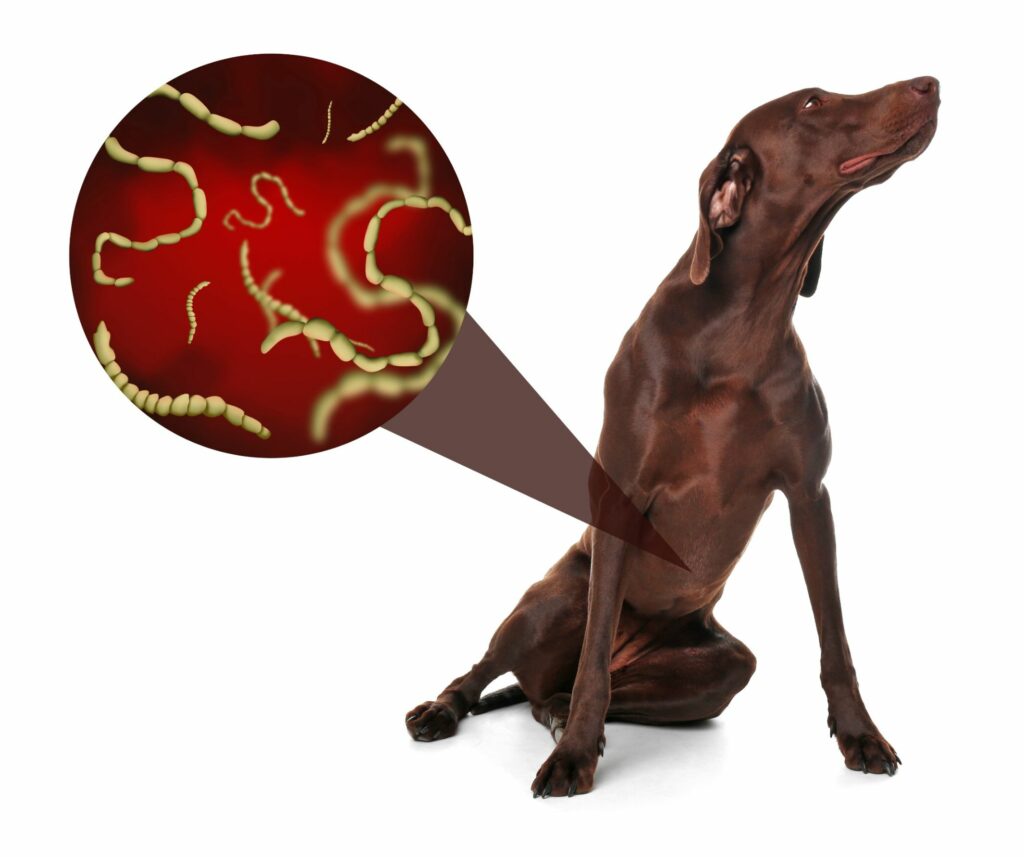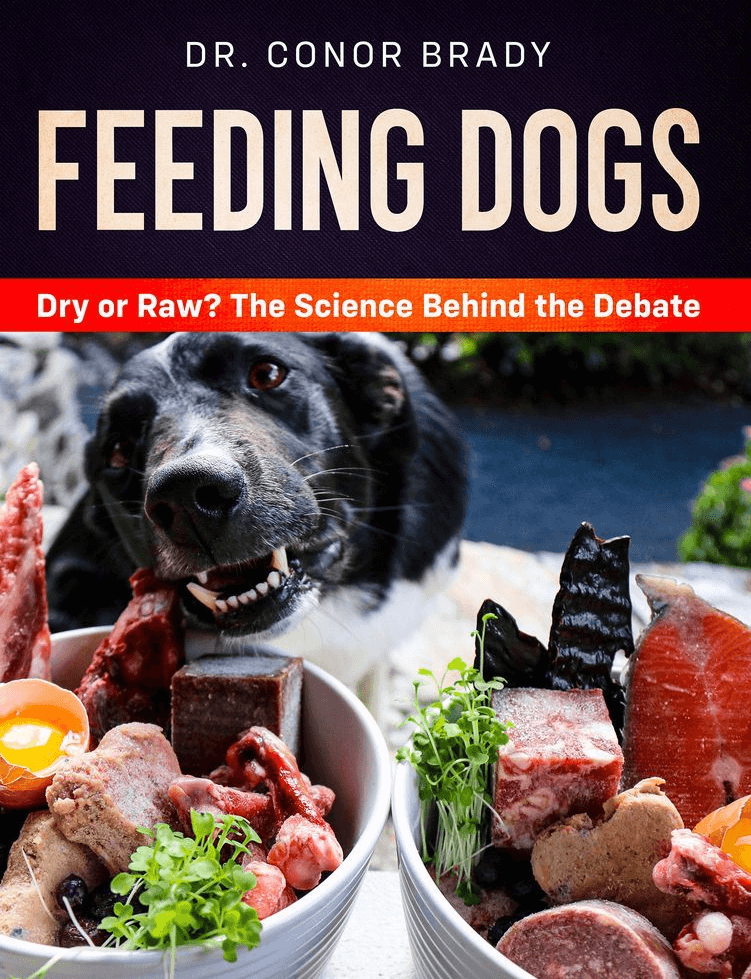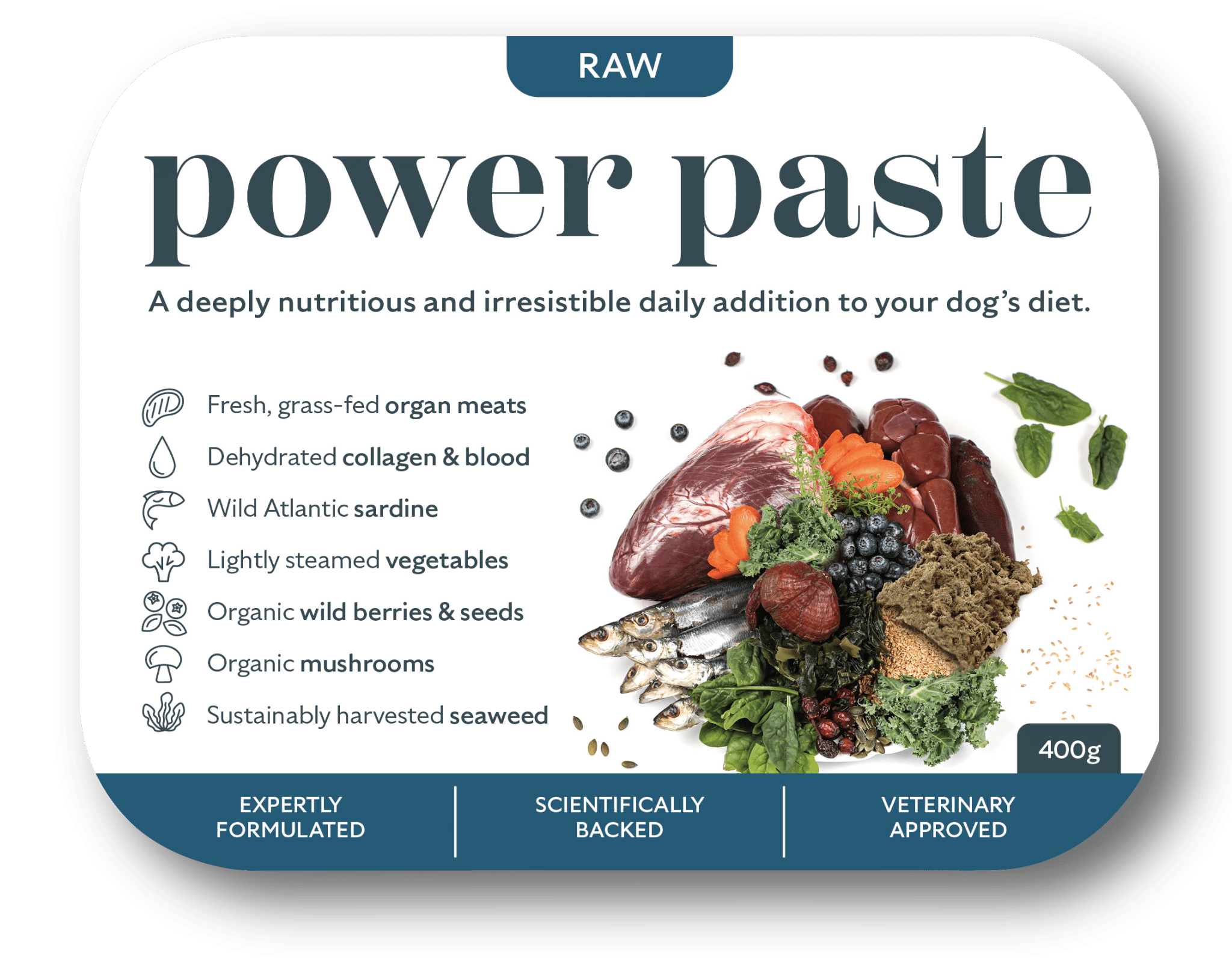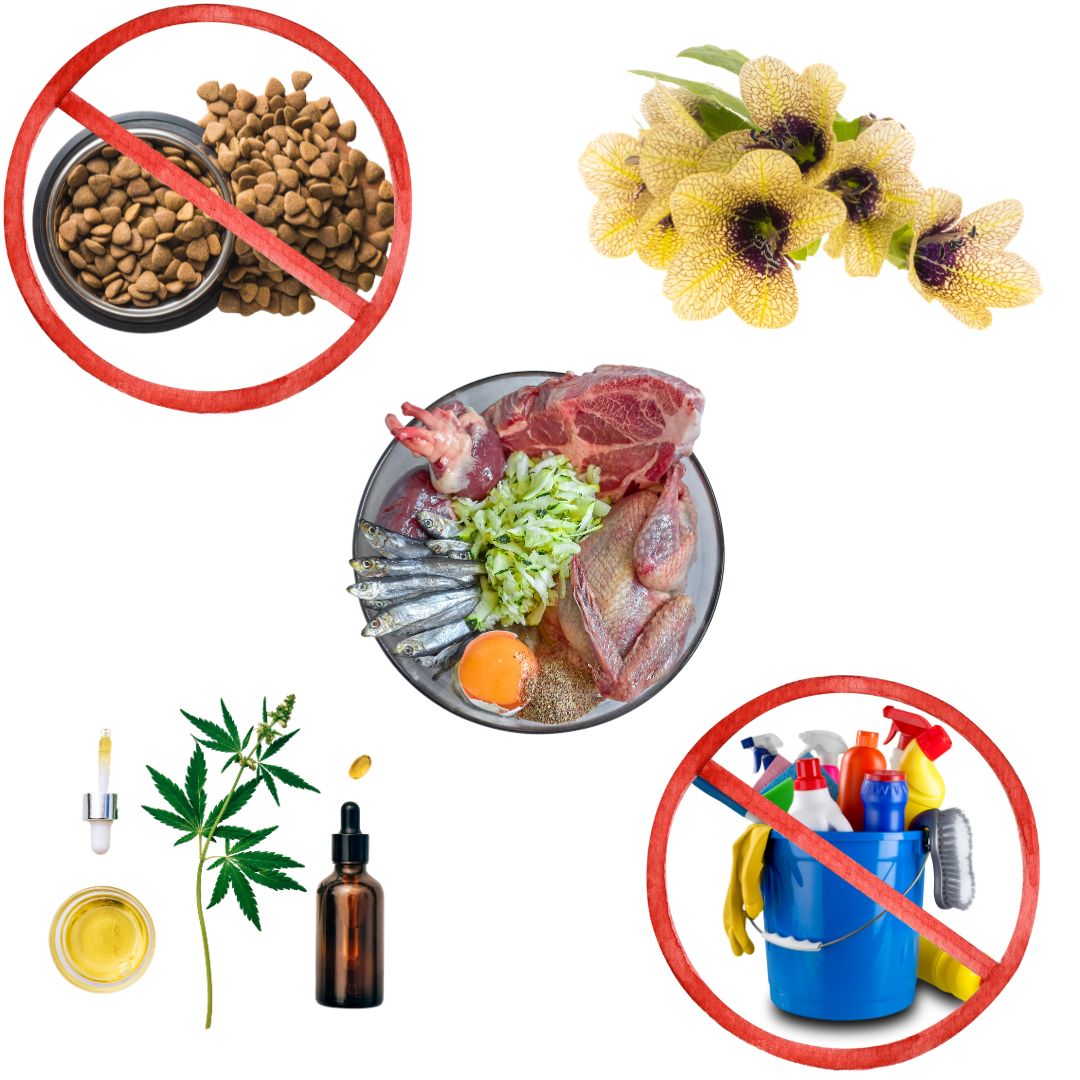One of the most common questions we are asked here at Dogs First is how to naturally, effectively and safely deworm dogs and we can understand why. Worms are parasites that can steal vital nutrients from our canine friends. Natural worm treatments are a much safer alternative to conventional medications, so let’s take a look at what they are.
Benefits Of Natural Worm Treatment In Dogs
Worms are parasites. Large burdens in the canine body can steal vital nutrients, causing anaemia in puppies and a plethora of issues for the elderly dog. Whilst often less of a concern for the generally healthy dog, they aren’t something we should ignore.
Our dogs can become host to a number of different types of worms, some are more common than others, like tapeworm for example. If you want to learn more about the different worms your dog could have, check out our article
But no matter the worm, we advocate natural worming treatments for a number of reasons.
Natural Options Prevent As Well As Treat
As new dog owners, flea and worm treatments are often recommended synonymously. These products are usually touted to prevent fleas and worms, and therefore, we assume that because flea products “work” for a certain length of time (monthly, three monthly etc) that wormers also “work” for a certain length of time.
Now, on further investigation, we understand that flea products don’t technically prevent fleas, they just kill them relatively quickly once the flea has ingested the toxin that has been circulating around the dog.
On further investigation of worm products, we learn that they also don’t prevent worms. They simply kill worms at the time of administration.
This raises two important points.
Firstly, if the dog doesn’t have worms, what are we wanting to kill? And secondly, technically, you could administer the wormer and your dog could get worms days or weeks later.
A data sheet for Milbemax states:
“After oral administration of praziquantel in the dog, peak serum levels are rapidly attained (approximately 0.5-4 hours) and decline quickly (approximately 1.5 hours). Excretion is fast and complete (about 90% in 2 days); the principal route of elimination is renal.”
If levels of the active ingredient decline quickly, how can it prevent future worms?
This is why we advocate natural worming options because as well as treating any worm burden, they can also prevent future worm infestations.

Natural Options Have a Lower Risk of Side Effects
Many natural approaches to worming dogs are simple food additions to the bowl and to be quite honest, not much can go wrong with food. So in many cases, you have nothing to lose and potentially everything to gain.
Sadly, conventional worm treatments indicate side effects on their data sheets. For example, on the milbemax data sheet:
“Treatment of dogs with a high number of circulating microfilariae can sometimes lead to the appearance of hypersensitivity reactions, such as pale mucous membranes, vomiting, trembling, laboured breathing or excessive salivation. The use in dogs suffering from microfilaremia is thus not recommended.”
“No studies have been performed with severely debilitated dogs or individuals with seriously compromised kidney or liver function. The product is not recommended for such animals or only according to a benefit/risk assessment by the responsible veterinarian.”
“hypersensitivity reactions, systemic signs (such as lethargy), neurological signs (such as muscle tremors, ataxia and convulsions) and/or gastrointestinal signs (such as emesis, drooling, diarrhoea and anorexia) have been observed in dogs after administration of the veterinary medicinal product.”
In the advocate data sheet:
“There is limited experience on the use of the product in sick and debilitated animals.”
“Vomiting can occur.”
“Use of the product may result in transient pruritus in dogs. Transient local skin sensitivity reactions including increased itching, hair loss, greasy fur and redness at application sites have been reported.”
“Neurological signs such as ataxia and muscle tremor may be observed.”
“The product may cause at the application site a sensation resulting in transient behavioural changes such as lethargy, agitation, and inappetence.”

Natural Options are More Environmentally Friendly
On the data sheet for Advocate, the manufacturers warn:
“Advocate should not enter water courses as it has harmful effects on aquatic organisms: moxidectin is highly toxic to aquatic organisms. Dogs should not be allowed to swim in surface waters for 4 days after treatment.”
How certain are we that these products aren’t entering the water system?
There is increasing data that flea and tick products are entering the waterways, are we so sure this isn’t also happening with worm treatments?
When there are safe and effective natural options, doesn’t it make sense to try those first?

Effective Natural Worm Remedies
There are a number of foods that you can add to your dog’s bowl that can support intestinal health. In addition, there is increasing data suggesting these foods have anti-worm properties. Wholefoods have pretty good safety margins (unless your dog has a severe allergic reaction to them) which is why we’re such big fans.
Dietary Remedies for Worms in Dogs
Garlic
Eating garlic during an active worm burden has been seen to reduce worm burden and egg counts. Interestingly, there are some that suggest burdens/eggs return when garlic ingestion has ceased so the current school of thought is to regularly feed garlic if you want to reap the anti-worm rewards.
If you want to feed garlic to your dog, use chopped raw organic garlic and let it sit for 10 to 15 minutes before giving it to your dog. This will help release those beneficial compounds.
Recommended Garlic Dose Using Measuring Spoons
By using a regular measuring tsp, include the following amount of raw garlic per day to your dog’s diet according to its weight in pounds.
- 5 lbs: ⅙ tsp
- 10 lbs: ⅓ tsp
- 15 lbs: ½ tsp
- 20 lbs: ⅔ tsp
- 30 lbs: 1 tsp
Recommended Garlic Dose Using Cloves
Clove sizes naturally vary from one another, so using garlic cloves as a measurement is subjective, but here it is:
- 10-15 lbs: ½ clove
- 15-40 lbs: 1 clove
- 40-70 lbs: 2 cloves
- 70-90 lbs: 2 ½ cloves
- 100 lbs+: 3 cloves
For consistency and proper dosing, we’d recommend using the measuring spoon method. If you’re concerned, you can always have a chat with one of us before including garlic in your pet’s diet.
If you want to learn more about garlic and your dog, check out our article, Is Garlic Safe For Dogs? You will find all of the details including why we don’t feed garlic to: puppies, pregnant and nursing dogs and those that are taking certain medications.

Pumpkin seeds
Pumpkin seeds contain an amino acid called cucurbitin. Cucurbitin paralyses worms which means they can be safely excreted from the digestive system. Pretty nifty little seeds aren’t they.
Grind the pumpkin seeds and give ¼ tsp per 10 lbs/5kg of weight once or twice a day. Remember to use raw seeds (none of these seasoned seeds from the store).
Or you can buy our worm prevention product Kanex which contains pumpkin seeds and dulse seaweed (Palamaria palmata). This is a red seaweed common in Irish waters. Traditionally, it has been used as an anti-helminthic due to its high levels of kainic acid which studies show is a potent antihelminthic (shuts down egg growth).
Grated Fruits and Vegetables
Adding foods like carrots, cucumber, watercress, greens, squash, and fennel to your dog’s bowl are simple additions that can support intestinal health. In addition, pineapple contains the compound bromelain which has been seen to have anthelmintic properties. The fruit papaya also contains papain which has been seen to have anthelmintic properties too.
Add these foods to your dog’s bowl as you see fit – but we would argue these are more prevention than cure.
Pomegranate has been used for decades as an anthelmintic in humans, but largely in peel form or extract so double-check dosing with your holistic vet first.
Herbal Remedies for Worms in Dogs
In addition to foods, there are a number of herbal remedies that have successfully prevented and treated worms in dogs.
Wormwood
In Nordic countries, farmers rely on plants as deworming agents for their livestock. The feeding of wormwood (Artemisia absinthium), mugwort (A. vulgaris), chicory (Cichorium intybis) and common tansy (Tanacetum vulgare) is routine to prevent and treat worms.
This idea has filtered down and some will question whether wormwood can be used to treat worms in dogs.
It seems that the dosage at which wormwood kills worms could also prove toxic to dogs, so there is a very fine line between killing worms and potentially, your dog. It is largely advised to avoid wormwood, unless administered under the supervision of a holistic vet.
But we can learn some other things from the Nordic farmers, their use of thyme and mint.
Thyme
Thyme is thought to have anti-worm properties, specifically for hookworm species.

Mint
Just like thyme, farmers have routinely used mint for its anti-worm properties especially against hookworms.
You’ll be pleased to know that Verm X contains both of these herbs, amongst others, and it’s a beautiful supplement that supports intestinal health.

Chicory
Tanniferous plants are thought to have a direct anthelmintic effect on resident worm populations in animals. One of those tanniferous plants is chicory. Studies have shown that chicory induces a potent and dose-dependent worm paralysis in infected animals.
A perfectly safe food for dogs to eat, they can eat the greens and/or the root. Chicory is also a great food to support overall intestinal health, so it’s a win win!

Precautions and Considerations of Natural Worm Treatment in Dogs
By now you must have realised that we always advocate a food-first approach, so add supportive foods like grated fruits and vegetables, ground pumpkin seeds and garlic to your dog’s bowl. In addition, thyme, mint and chicory can all be safely fed to support intestinal health.
But like all things, there are some caveats when using natural treatments.
Severe Infestations
In cases of high burden or if you’ve tried fighting the good fight with natural approaches and aren’t getting very far, you should speak with your vet to establish the safest approach to eradicate the worms.
If you notice signs of worms in your dog, carry out a wormcount to identify which worm/s are the culprit. The treatment can then be tailored to eradicate these worms specifically.
Moving forwards, natural prevention should be at the top of your list, so start with useful additions to the bowl and consider supportive herbs and perhaps a product like Verm X.
For recurring skin, ear and gut conditions watch Dr Brady’s Canine Allergy course today!
Allergic Reactions
Whilst natural approaches have far fewer unwanted effects than many conventional treatments, every dog is different and what may suit or be tolerated by one, may not suit or be tolerated by another. As with anything new you add to your dog’s diet or routine, be mindful of any changes to their demeanour or signs the new addition isn’t agreeing with them.
Risk of Re-infestation
Think of natural approaches as more a life-long friend than an acquaintance you catch up with a few times a year. Whilst some supplements like Verm X are only added to the bowl 3 days out of a month, whole-food additions generally need concurrent use, so you can’t just pop a clove of garlic in your dog’s bowl once every 6 months and hope for the best.
FAQs
How can I deworm my dog naturally?
There are a number of useful whole-food additions you can use to deworm your dog naturally. These include raw garlic, ground pumpkin seeds and certain grated fruits and vegetables like carrots, pineapple and papaya. In addition herbs like thyme and mint are known to support intestinal health and have anti-worm properties. Chicory is also a safe addition to your dog’s diet.
Does apple cider vinegar kill worms in dogs?
There are suggestions that apple cider vinegar (ACV) is a natural dewormer for dogs as it makes the digestive system more alkaline, which worms dislike. However, the body is designed to maintain balance. As food enters the stomach it is bombarded with acid, this is then neutralised in the small intestine with bicarbonate. There is little robust data to suggest that simple foods can alter the acidity or alkalinity of the digestive system (or blood for that matter), when the body does its best to maintain balance. ACV is perfectly safe to offer to your dog, but there may be more effective natural dewormers.
Does garlic kill worms in dogs?
There is evidence that garlic possesses anti-worm properties. Studies have demonstrated a reduced worm burden and egg count when feeding garlic to animals.
Does worm medicine cause diarrhoea in dogs?
Conventional worm treatments often list diarrhoea as a side effect, along with vomiting and more.
Can I use Natural worming treatment regularly?
Wholefoods that have anti-worm properties can be included in your dog’s diet as often as you like. Herbs can regularly be added too. If you opt for a supplement which contains anti-worm ingredients, follow the feeding guidelines on the package.
Why Natural worm prevention is important?
Worms are parasites which can steal vital nutrients from your dog’s body. We can’t ignore them. Sadly, many conventional worm treatments come with a shopping list of side effects from vomiting and diarrhoea, to muscle tremors and seizures. The conventional approach is to administer a worm treatment monthly/three monthly etc regardless of whether a dog has a worm burden or not. When there is such a significant risk of side effects, why would we treat something that may not even be there?
Conclusion
We can naturally prevent worms with beneficial foods and herbs added to our dog’s bowl. There are also supplements, like Verm X designed specifically to support our dog’s intestinal health.
In addition, carry out wormcounts, which are stool samples that identify whether a worm burden is present in our dogs. Only then would we need to decide how best to treat it.
We must also remember that the best worm prevention is a healthy dog. So whether you want to start your puppy off on the right paw or keep your ageing dog fighting fit (and everything in between), book a consultation with Dr. Conor.















